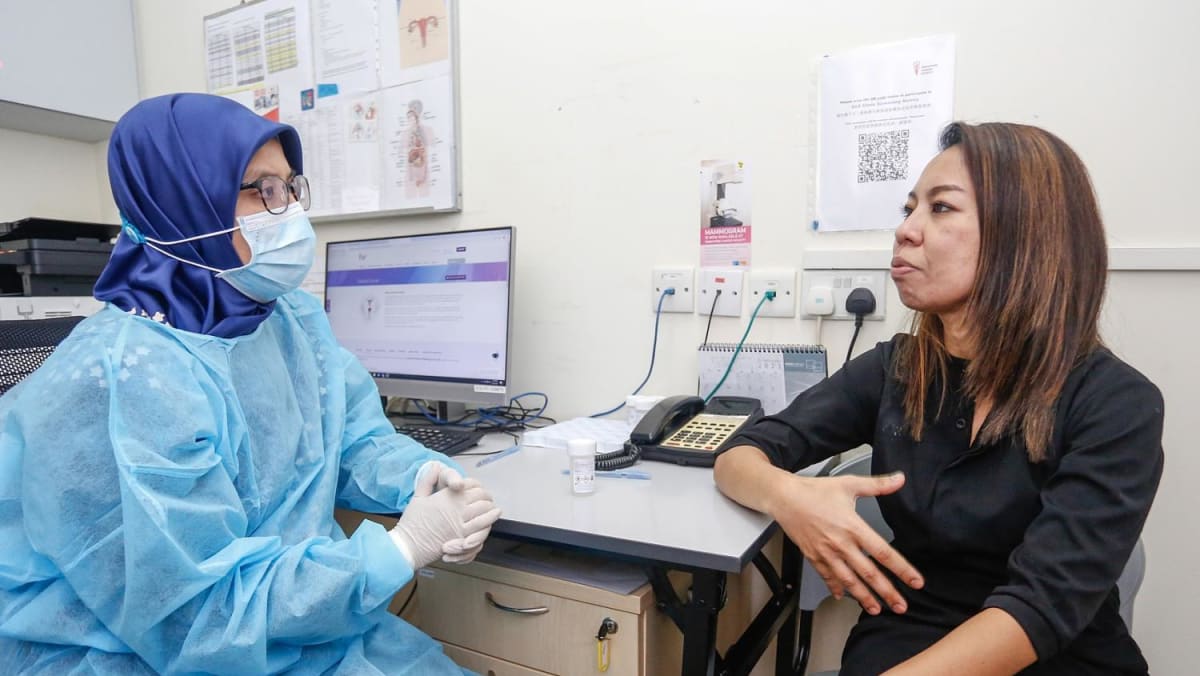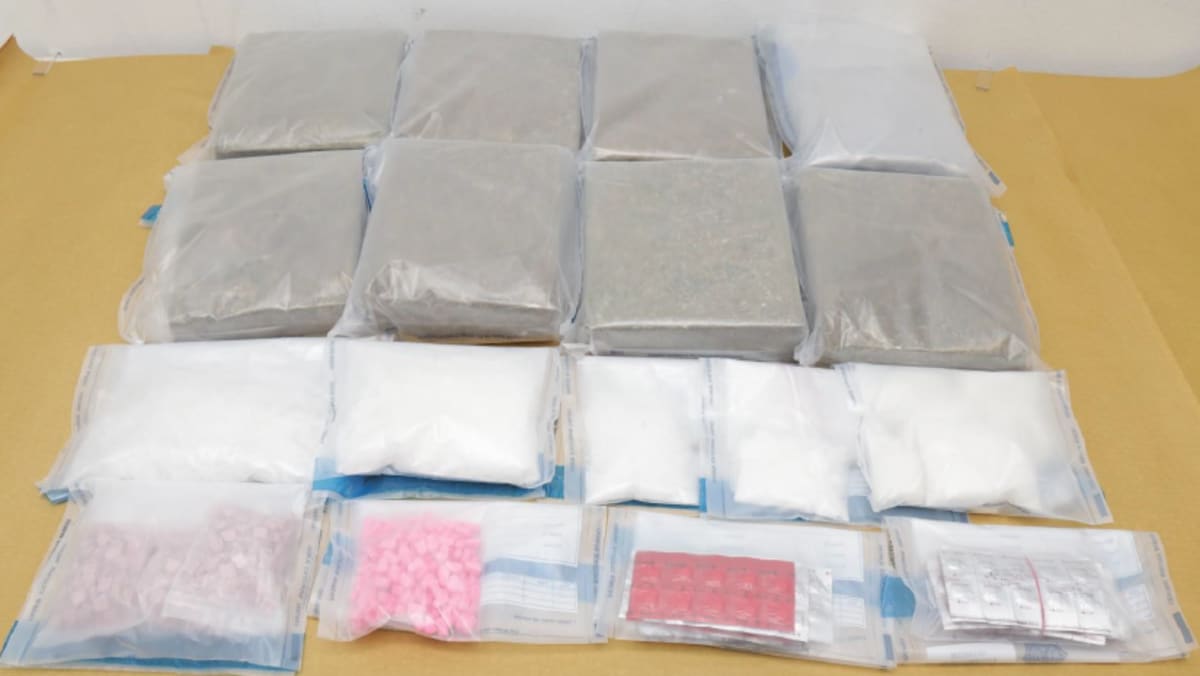WHY THE FOCUS ON SCREENING FOR COLON, BREAST AND ‘COMMON’ CANCERS
The screening methods above for colon, breasts and cervix have been shown to effectively detect cancer at an earlier stage.
In some cases, screening may be able to detect even a pre-cancer development, which is the presence of abnormal cells that could pose a greater risk of becoming cancerous.
Colorectal cancer is an example of a well-studied cancer that can be detected even before the actual disease develops.
The faecal immunochemical test is a preliminary cancer screening test that detects the presence of small amounts of blood in stools.
However, the presence of blood does not mean that the person has cancer; further tests are needed.
Dr Melvin Look, a specialist in gastrointestinal cancer surgery and director of PanAsiaSurgery clinic, said that a positive faecal immunochemical test should be followed by colonoscopy for screening.
The procedure for a colonoscopy involves preparation the day before of drinking a laxative solution to clear out all solid contents in the intestines.
Then, for the scope, a long flexible tube with a light and tiny camera is placed through the anus into the end of the large intestine to look for abnormalities along the intestinal walls and tract.
Dr Samuel Ow, Singapore Cancer Society’s council member and chairperson of the society’s community health committee, explained how colonoscopy can potentially detect the cancer at a very early stage, even in a pre-cancer stage.
“We know that there’s a continuum.
“It begins from normal colon tissue, to a benign polyp (benign lumps that form on the inner wall of the colon and rectum), to a polyp that is starting to develop changes, to a pre-cancer polyp, then to invasive cancer.
“This whole developmental process can take a decade or longer.
“Therefore when I speak to my patients about screening for colon cancer, I will pitch to them that I’m actually not trying to detect cancer; I’m trying to detect the precursor of cancer and nip it in the bud.”
Dr Ow is a senior consultant with the department of haematology-oncology at National University Cancer Institute, Singapore.
Dr Look said that the availability and uptake of screening tests in Singapore have helped detect some cancers earlier.
For example, about 42 per cent of men with colorectal cancer are diagnosed in the early stages, compared to 19 per cent for lung cancer.
For women, more than three quarters of them (77 per cent) with breast cancer are diagnosed early, whereas only 37 per cent of stomach cancer is diagnosed in the early stage, he said.
WHY ROUTINE OR FREQUENT SCREENING IS NOT ENCOURAGED FOR OTHER CANCERS
One question you might ask is that why are other forms of “common” cancer such as stomach cancer and lung cancer not on the national screening programme?
And with so many types of cancers to watch for, why are there not more routine screening methods to check every organ?
Dr Tanujaa Rajasekaran, senior consultant medical oncologist at Parkway Cancer Centre, said that not all cancers have well-established screening methods.
Breast, colon and cervical cancers are included in the national screening programmes because they meet several criteria:
• They are relatively common
• There are effective screening methods available
• Early detection has been shown to significantly improve outcomes for these cancers
“On the other hand, even though lung, prostate and stomach cancers are also common, there may be challenges with implementing effective screening programmes for these cancers,” Dr Tanujaa said.
“For example, there may not be highly accurate and cost-effective screening tests available for these cancers that can reliably detect them at early stages.
“Additionally, the risk factors for these cancers may not be as well-understood or easily identifiable as those for breast cancer, colon and cervical cancers.”
Certain screening procedures may also be invasive, and pose potential risks that do not justify the benefits of screening an entire population.
For example, the current methods to assess the pancreas is through “very invasive” scopes or computed tomography (CT) scans, which comes with radiation, Dr Ow said.
In Singapore, pancreatic cancer is the 10th most common cancer among men and ninth most common one among women.
However, its aggressive nature makes it the fourth most common cause of cancer deaths here.
Dr Ow said: “You can argue that a colonoscopy (that screens for colon cancer) is very invasive, but the frequency that we do a colonoscopy is typically about every 10 years. And so, that’s sort of worth it because we know the continuum is long.
“But for an organ like the pancreas, we don’t know what the continuum is. Do we offer this yearly? Can we offer this half yearly?
“Also, how do we get tissues from the pancreas? We will have to do a biopsy through a scope. You can imagine that there’s this invasiveness, potential harm, side effects and so forth.”
Dr Ow also said that apart from the potential medical risks, unnecessary invasive screening procedures can affect people psychologically and can be cost- and time-consuming.
There is also now evidence to suggest that screening may sometimes detect cancers that are very slow-growing, or indolent, that may not actually require any treatment, Dr Tanujaa said.
For some slow-growing cancers, the treatment strategy may be just watchful waiting, which means to closely monitor the patient without giving any treatment until changes occur, Dr Ow said.
“Studies have shown that if you do autopsies of elderly men, many of them may have had prostate cancer but they (did not) die of it.
“So that’s why there’s something called ‘a lead-time bias’, because we don’t know whether or not some cancers picked up by tests can affect lifespan or affect quality of life. Prostate cancer that is slow-growing is (an example),” he explained.
Lead-time bias occurs when screening finds a cancer earlier, but the earlier diagnosis does not change the course of the disease.
WHEN TO SCREEN EARLIER FOR CERTAIN CANCER TYPES
The current national screening recommendations for cervical, breast and colon cancer apply to people with average risks and no symptoms.
For those with more risk factors, extra or early screening may be appropriate.
“Individuals with a strong family history of certain cancers may benefit from starting cancer screening at an earlier age or undergoing more frequent screening than the general population,” Dr Tanujaa said, adding that the decision should be made in consultation with a healthcare provider.
For instance, women with a family history of breast cancer, especially if it involves first-degree relatives such as a mother or sister, may be advised to start mammography screening at an earlier age than the general population.
Dr Tanujaa said that it is generally recommended to start breast cancer screening 10 years younger than the first-degree relative was when she was diagnosed with breast cancer.
Genetic counselling and testing for mutations in the BRCA1 and BRCA2 genes may be recommended for those with a strong family history of breast or ovarian cancer, she advised.


.jpg?itok=vsFzmCXh)










